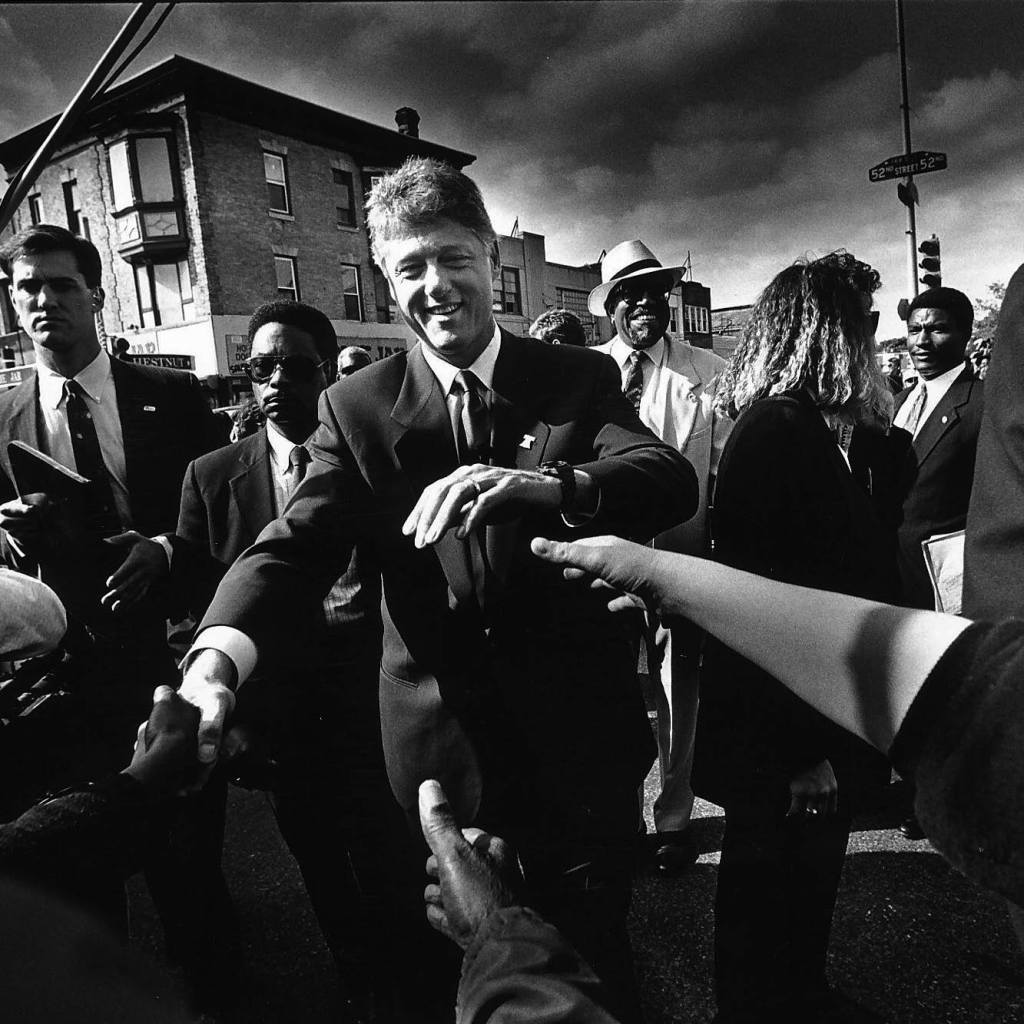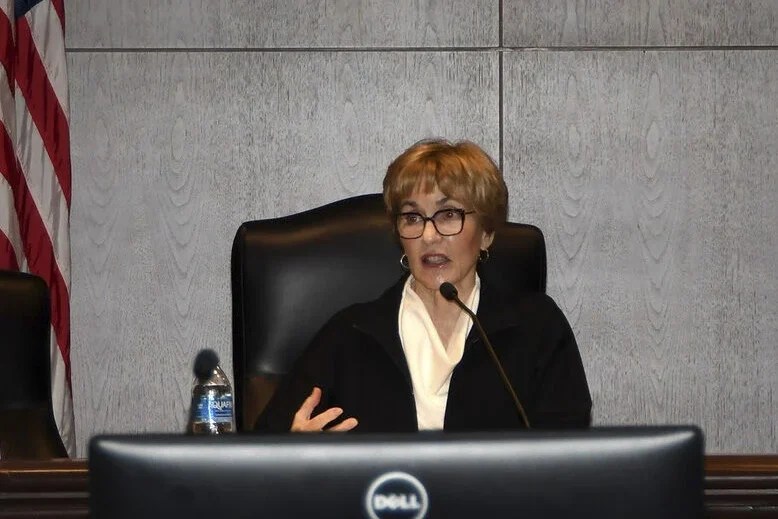In February 1974, the British prime minister Edward Heath, then facing one of his country’s cyclical economic crises, called a snap general election. The result was close; Heath’s Conservative Party won the popular vote but secured fewer parliamentary seats than the Labour opposition. After power-sharing discussions broke down, Heath resigned from office. A fifty-seven-year-old bachelor without a London home of his own, he lodged for the next several months at a small Westminster flat owned by his political secretary Timothy Kitson. The man who had served as his nation’s head of government for the previous four years was left with a typist, a single daytime detective and a part-time driver at his disposal. He could frequently be seen walking unaccompanied through the city streets to the local shops.
Ted Heath’s story is worth mentioning only because it stands in some contrast to the arrangements made when Bill Clinton, then aged fifty-four, came to leave the White House in January 2001. In his latest book, the former president bemoans the fact that “no one plays a song when I walk in the room anymore,” before going on to describe his initial six months’ transition in a fully-staffed, taxpayer-funded building in Washington, and his subsequent tenancy in a well-upholstered office suite in Upper Manhattan, not to mention the round-the-clock entourage of secretaries, drivers and Secret Service personnel assigned to him and his family, nor the accompanying lifelong $220,000 annual pension and other benefits. To hear Clinton speak of it, it’s a struggle for an ex-commander-in-chief merely to make ends meet.
As much as anything else, this is a book of omissions. Although Clinton goes into some detail about his departure from the White House, he fails to mention the events of his final full day in office, in which he was handed a five-year suspension of his law license and a fine of $25,000 as punishment for false testimony he gave in the sexual-harassment suit brought against him by Paula Jones. He does, though, address the story that he stole bedside tables from the master bedroom of the White House, as was widely reported at the time. Instead, Clinton claims — finally knocking this calumny on the head — that staffers actually asked him to take the tables, because they didn’t want to store or keep them. (The first family did, however, return $28,000 worth of household goods they removed from the White House after questions arose whether the items had been intended as personal gifts to them or bequests to the nation.)
On the whole, Citizen is not notable for its self-reflection. There is no real reckoning or note of contrition for any possible lapses of moral judgment while in office. The book’s index includes a generous entry under the heading of “Women,” but, perhaps disappointingly, this deals exclusively with the author’s unstinting support for female suffrage and reproductive rights around the world, rather than with matters pertaining to the unconventional use of Gurkha cigars or the dry-cleaning essentials of stained blue dresses. Clinton’s sole comment on Monica Lewinsky comes in the context of his “frustration” at being asked about his relationship with the young White House intern during the course of a 2018 television interview. He refers to the ensuing exchange as “not my finest hour” and concludes with the maxim: “It’s always better to save your anger for what happens to other people, not yourself.”
There have been political regrets, we learn. The 1994 genocide in Rwanda, which saw the deaths of 800,000 Tutsi civilians in just ninety days, was one of them. But, as so often the case when Clinton comes to assess his eight years in office, it seems there were extenuating circumstances. “I ordered the evacuation of all Americans from Rwanda,” he writes. “But we were so preoccupied with Bosnia, with the memory of Somalia just six months old, and with strong opposition in Congress to military deployments in faraway places, that neither I nor anyone on my team adequately focused on Rwanda.” Clinton adds that someone in the executive branch “told our UN officer to oppose Canada’s proposal to lead a force of 10,000 to halt the slaughter, which we shouldn’t have done. I tried to find out who was behind [the US veto], but no one would take responsibility,” which somehow brings to mind Harry Truman’s aphorism about presidential accountability.
What exactly does a reasonably fit (albeit heart-bypassed) ex-president do with his time, aside from writing a series of memoirs and preposterous spy novels, and charging roughly $200,000 a pop for an hour-long speaking engagement? The answer, as revealed in the 450 pages of Citizen, is philanthropy, more especially the work of the Clinton Foundation and its offshoot the Clinton Global Initiative, which we learn is intended “to bring people together who want to make positive change.” African agriculture, Haitian earthquake relief, sundry far-flung bridge and dam projects, wind-energy plants in the Dominican Republic — few parts of the world are entirely free from the Clinton Foundation’s empathy. It’s either an entirely laudable initiative for universal human progress, or, as some cynics have suggested, an exercise in reputation-laundering for obscenely wealthy patrons like the late Jeffrey Epstein. We learn the disgraced financier “invited me to fly on his airplane to support the work of the foundation, [and] and in return asked only that I take an hour or two on each trip to discuss politics and economics.” It was one high-powered connection Clinton came to regret. “I wish I had never met him,” he concludes.
When it comes to domestic politics, Clinton’s critique boils down to two words: Trump bad. How on earth could his beloved wife lose the 2016 election to a man portrayed here as little more than a priapic buffoon with, the author admits, a passing talent for “turning legitimate concerns into rage-fueled resentment, especially in culturally conservative, economically stagnant areas”? The answer, apparently, is down to the uniquely malign tag-team of Vladimir Putin and Jim Comey. Hillary was cruising to victory, it appears, until the moment Putin arranged to dump thousands of messages to and from her campaign chairman into the public arena, reminding everyone about her negligence — to use the most measured word possible — in choosing to use a private email server while secretary of state. Then, just eleven days out, Comey got into the act again, publicly announcing that he was reopening the same email investigation he had closed three months earlier, before once again deciding that Hillary had been “extremely careless” but had not broken the law. “By then, a lot of the damage had been done,” the author observes.
There could be no possibility that the outcome of the election was in any way attributable to the Democratic Party’s choice of a deeply flawed nominee who exuded desiccated rectitude — a candidate who was “all math and no poetry” as one critic put it — and who also had a major trust problem. According to Bill Clinton, even the “technical result” of the election, in which his wife won the popular vote but decisively lost the Electoral College, was a travesty. “We live in the only country in the world where you can win the election and still lose the job,” he writes, which might have come as news to Ted Heath and several other western political leaders who have been denied office in the same way over the years.
Much like its author, this book is not without a certain synthetic charm. There are numerous heartwarming stories of globetrotting charity and cozy chats with world leaders, many of them illustrated by color photos of the act or occasion in question. The tone is always lucid, generally inoffensive, and once or twice even becomingly gracious. “Citizen [is told] largely through the stories of other people who changed my life as I tried to help change theirs, of those who supported me, including those I loved and lost, and of the mistakes I made along the way,” Clinton writes at one point, channeling his inner Sinatra.
But no sooner do we pause for self-reflection than we’re back to that man Trump and the 2016 election again. “I was heartsick for Hillary and for our country,” Clinton writes. “I knew she wouldn’t be broken by this. But the country might be.” This mood of fluctuating optimism and despondency is symptomatic of the former president’s core view of America. He constantly assures us that he grew up to appreciate the unshakable strength of the nation’s values and institutions in binding together the disparate parts of a 333 million-strong community, but still frets that one resoundingly twice-elected leader with a flexible moral compass might bring the whole thing crashing down around him.
Bill Clinton remarked as he left office that “there is no title I will wear more proudly than that of citizen.” As he modestly informs us here, he and his foundation have striven tirelessly in the succeeding twenty-four years to improve the human lot around the world, from working with Nelson Mandela to get proper treatment for AIDS sufferers in Africa to interceding to free American journalists jailed in North Korea. Along the way, Clinton has survived heart-bypass surgery, raised funds for the college education of the families of 9/11 victims, written prolifically, won a Grammy for his narration of a children’s album and become a grandfather. He goes home most nights to the rambling Dutch Colonial estate he shares with Hillary in upstate New York. Above all, he continues to believe that his wife was the greatest president that America never had. All this is told with some force and style, and at its best is quite interesting, even if, to quote the late Queen, recollections may vary.
This article was originally published in The Spectator’s February 2025 World edition.























Leave a Reply